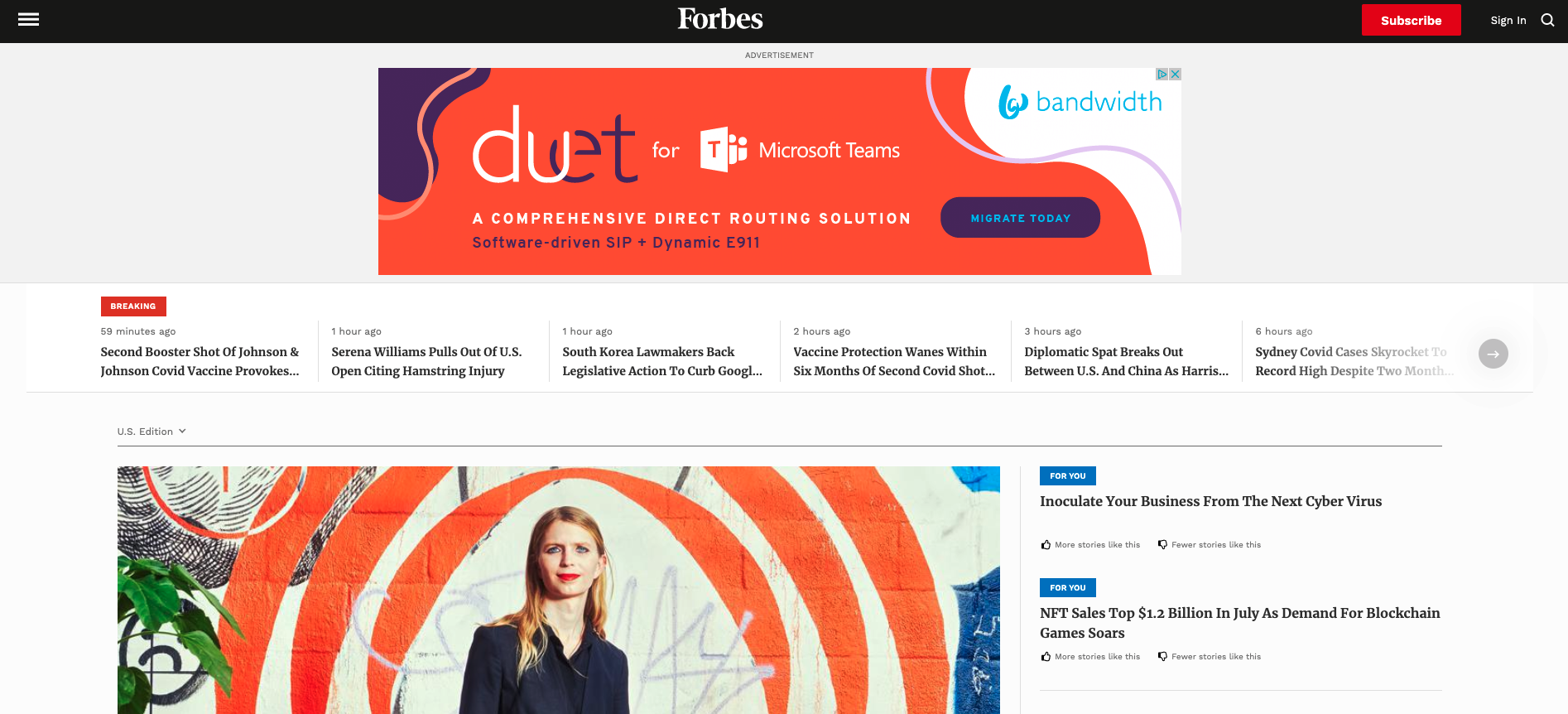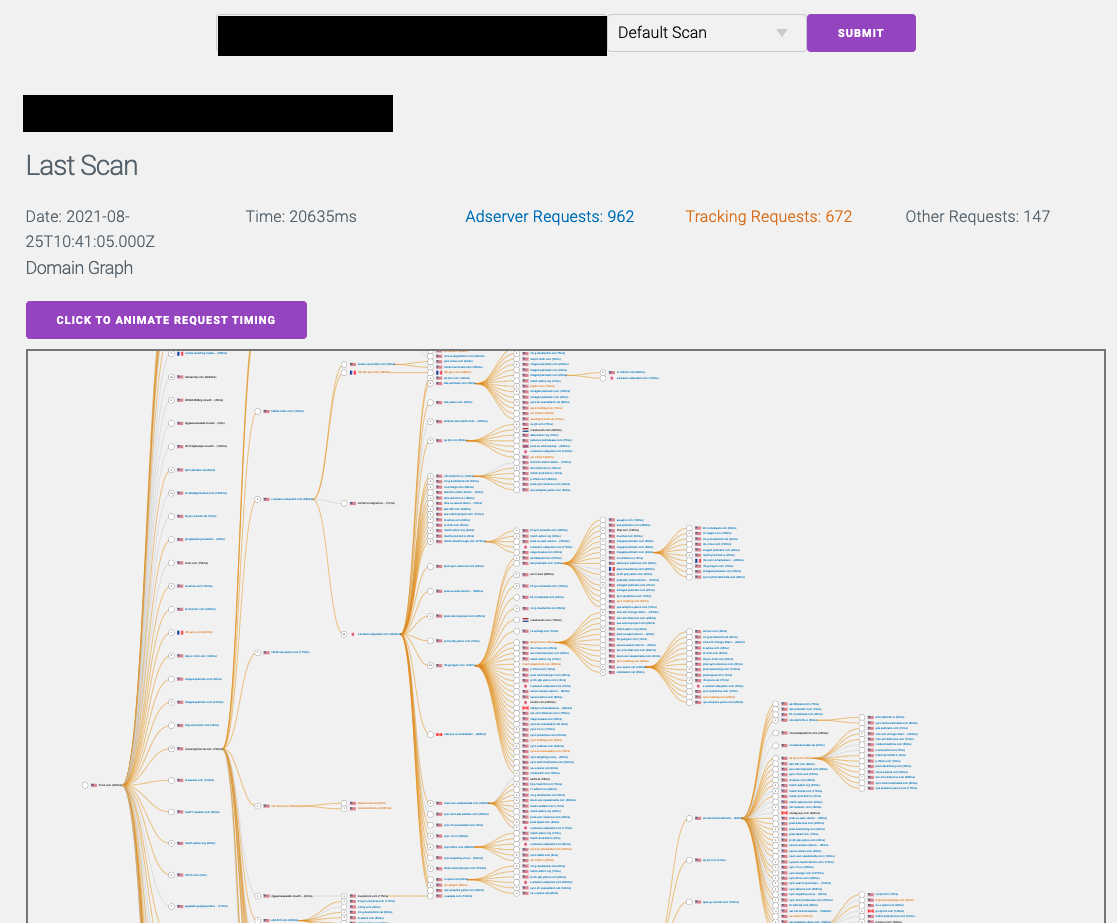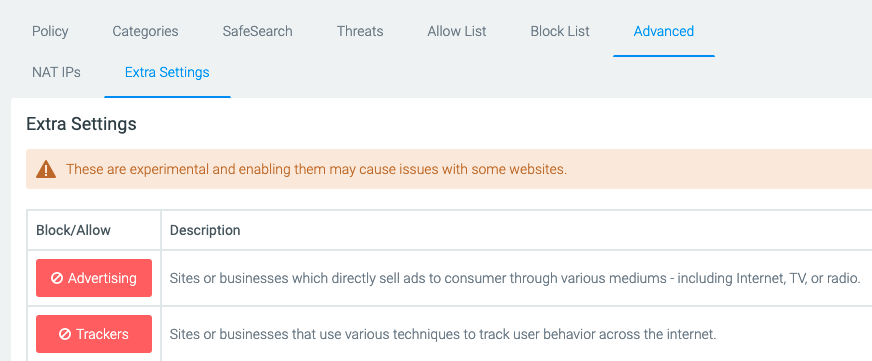Ads Vs. Trackers
by Peter Lowe on Sep 1, 2021 12:00:00 AM
When it comes to blocking ads, life used to be simple. You'd just install a browser add-on like uBlock Origin or AdBlock Plus and be done with it. Over time, though, things became complicated: Ads aren't just in browsers anymore, and the ads you do see are tied very closely to data collected by tracking services. These tracking services are often operated by the ad networks themselves, and viewing or interacting with the actual ads is a type of activity that's—you guessed it—tracked.
So what's the difference? Why does it matter? And can't we just block them all and be done with it?
What are Ad and Tracking Servers
Let's start with some definitions.
Ad servers
These are the servers on the internet that host the advertising content that gets shown to you. This is most commonly some kind of image, usually animated, but can also be dynamic text, interstitial pages, popups, overlays, and a ton of other things.

Tracking servers
These servers collect information about what you're doing online. And by "information" I mean pretty much everything you can think of: Every time you view a page, click a link, scroll through a page, even hover over an image, or start filling in a form and then decide not to—a server somewhere is probably being told about it.

Why you might want to block them
It's fairly clear to most people why you might want to block ads: The majority are annoying and disrupt your online experience.
Trackers on the other hand, are a different story. The main reason for blocking them is simply that people don't like their behavior being tracked online, especially without them knowing. The data that's being collected is used for all sorts of purposes, and shared with companies you've probably never heard of. It all goes into massive databases where it's analyzed to produce profiles of you as a person, what you like, and ultimately what you might buy. Then the advertisers use this profile to show you content (ads) that they think you'll be interested in.
Nobody likes being judged, and it's not nice when people talk about you behind your back. This is the online equivalent of both of those things.
There are other more nuanced ways of looking at this, and these collections of data have side effects that we won't go into here. But ultimately it's about preserving your privacy.
So what's the problem?
If you've ever tried blocking these kinds of tracker domains, you've probably run into a common issue: Sites start to break. Not always (and not always obviously), but every now and again something won't load properly, or a link won't do what you expect, or some other subtle breakage will pop up. Occasionally it's not even that subtle—sometimes sites completely fail to work.
The problem is that sites, online services, and even devices, tie their functionality to these tracker domains. In a nutshell, if they can't contact the domain, then the rest of the service won't work.
This is often just badly written code—the developer assumed that the domain would always be available and never tested what happens when it's not. Other times though, it's deliberate, to prevent people who are blocking these domains from using the service, effectively forcing them to enable ads or tracking.
What you can do about it
These kinds of problems are usually linked to tracking domains, rather than ad domains. So the most common solution is simply to not block trackers. This will solve site breakages in a lot of cases, but it does come at a cost to your online privacy. If that's fine with you, go for it! Many people don't really mind in the end. Some people equate trackers with more targeted ads. They see ads as inevitable, so they say "at least I'll like the ads."
If you really want to dig into things however, the thing to do is check your DNS query log to see what domains are being blocked when something breaks. One of those blocked domains in the log is most likely responsible for the issue you're having. The trick is figuring out which one!

With DNSFilter, you have the option of blocking ad servers, tracking servers, both, or neither. This gives you the flexibility to choose what’s best for you and your organization. If your concern is site usability but still want to block ads, you can block our ad server category. But if you want full control of your online experience and are interested in minimizing what information is shared with advertising companies, block ads and trackers. And if there are sites that are unusable, determine how valuable that site is to you and make the call to dig into the data and allow that site or to live without it. Sign up for a free trial today!
 6 Security-Focused New Year’s Resolutions for 2026
6 Security-Focused New Year’s Resolutions for 2026
The start of a new year is the perfect time to reset habits—not just personal ones, but digital habits too. Cybercriminals don’t need zero-days or nation-state tooling if we keep handing them easy wins through reused passwords, oversharing, and rushed reactions.
 Inside Business Email Compromise Scams: How to Protect Your Business
Inside Business Email Compromise Scams: How to Protect Your Business
The Scam That Outsmarts Awareness Training
It starts with a routine email.
 How to choose the right DNS provider for the job
How to choose the right DNS provider for the job
Choosing a DNS provider used to be about speed. Today, it’s about security. The Domain Name System (DNS) has evolved from a simple directory of the internet into a critical control point for visibility, compliance, and protection. The right provider can identify and block malicious activity before it ever reaches your endpoints, keeping your users safe—no matter where they connect. That’s why DNS filtering has become one of the most effective, ...


